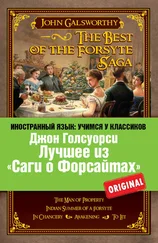The latter (continued she) most deeply regrets the step that has occasioned his relapse; but, as usual, he throws the blame upon me. If I had reasoned with him like a rational creature, he says, it never would have happened; but to be treated like a baby or a fool was enough to put any man past his patience, and drive him to assert his independence even at the sacrifice of his own interest. He forgets how often I had reasoned him ‘past his patience’ before. He appears to be sensible of his danger; but nothing can induce him to behold it in the proper light. The other night, while I was waiting on him, and just as I had brought him a draught to assuage his burning thirst, he observed, with a return of his former sarcastic bitterness, ‘Yes, you’re mighty attentive now! I suppose there’s nothing you wouldn’t do for me now?’
‘You know,’ said I, a little surprised at his manner, ‘that I am willing to do anything I can to relieve you.’
‘Yes, now, my immaculate angel; but when once you have secured your reward, and find yourself safe in heaven, and me howling in hell-fire, catch you lifting a finger to serve me then! No, you’ll look complacently on, and not so much as dip the tip of your finger in water to cool my tongue!’
‘If so, it will be because of the great gulf over which I cannot pass; and if I could look complacently on in such a case, it would be only from the assurance that you were being purified from your sins, and fitted to enjoy the happiness I felt. – But are you determined, Arthur, that I shall not meet you in heaven?’
‘Humph! What should I do there, I should like to know?’
‘Indeed, I cannot tell; and I fear it is too certain that your tastes and feelings must be widely altered before you can have any enjoyment there. But do you prefer sinking, without an effort, into the state of torment you picture to yourself?’
‘Oh, it’s all a fable,’ said he, contemptuously.
‘Are you sure, Arthur? are you quite sure? Because, if there is any doubt, and if you should find yourself mistaken after all, when it is too late to turn – ’
‘It would be rather awkward, to be sure,’ said he; ‘but don’t bother me now – I’m not going to die yet. I can’t and won’t,’ he added vehemently, as if suddenly struck with the appalling aspect of that terrible event. ‘Helen, you must save me!’ And he earnestly seized my hand, and looked into my face with such imploring eagerness that my heart bled for him, and I could not speak for tears.
* * * * *
The next letter brought intelligence that the malady was fast increasing; and the poor sufferer’s horror of death was still more distressing than his impatience of bodily pain. All his friends had not forsaken him; for Mr. Hattersley, hearing of his danger, had come to see him from his distant home in the north. His wife had accompanied him, as much for the pleasure of seeing her dear friend, from whom she had been parted so long, as to visit her mother and sister.
Mrs. Huntingdon expressed herself glad to see Milicent once more, and pleased to behold her so happy and well. She is now at the Grove, continued the letter, but she often calls to see me. Mr. Hattersley spends much of his time at Arthur’s bed-side. With more good feeling than I gave him credit for, he evinces considerable sympathy for his unhappy friend, and is far more willing than able to comfort him. Sometimes he tries to joke and laugh with him, but that will not do; sometimes he endeavours to cheer him with talk about old times, and this at one time may serve to divert the sufferer from his own sad thoughts; at another, it will only plunge him into deeper melancholy than before; and then Hattersley is confounded, and knows not what to say, unless it be a timid suggestion that the clergyman might be sent for. But Arthur will never consent to that: he knows he has rejected the clergyman’s well-meant admonitions with scoffing levity at other times, and cannot dream of turning to him for consolation now.
Mr. Hattersley sometimes offers his services instead of mine, but Arthur will not let me go: that strange whim still increases, as his strength declines – the fancy to have me always by his side. I hardly ever leave him, except to go into the next room, where I sometimes snatch an hour or so of sleep when he is quiet; but even then the door is left ajar, that he may know me to be within call. I am with him now, while I write, and I fear my occupation annoys him; though I frequently break off to attend to him, and though Mr. Hattersley is also by his side. That gentleman came, as he said, to beg a holiday for me, that I might have a run in the park, this fine frosty morning, with Milicent and Esther and little Arthur, whom he had driven over to see me. Our poor invalid evidently felt it a heartless proposition, and would have felt it still more heartless in me to accede to it. I therefore said I would only go and speak to them a minute, and then come back. I did but exchange a few words with them, just outside the portico, inhaling the fresh, bracing air as I stood, and then, resisting the earnest and eloquent entreaties of all three to stay a little longer, and join them in a walk round the garden, I tore myself away and returned to my patient. I had not been absent five minutes, but he reproached me bitterly for my levity and neglect. His friend espoused my cause.
‘Nay, nay, Huntingdon,’ said he, ‘you’re too hard upon her; she must have food and sleep, and a mouthful of fresh air now and then, or she can’t stand it, I tell you. Look at her, man! she’s worn to a shadow already.’
‘What are her sufferings to mine?’ said the poor invalid. ‘You don’t grudge me these attentions, do you, Helen?’
‘No, Arthur, if I could really serve you by them. I would give my life to save you, if I might.’
‘Would you, indeed? No!’
‘Most willingly I would.’
‘Ah! that’s because you think yourself more fit to die!’
There was a painful pause. He was evidently plunged in gloomy reflections; but while I pondered for something to say that might benefit without alarming him, Hattersley, whose mind had been pursuing almost the same course, broke silence with, ‘I say, Huntingdon, I would send for a parson of some sort: if you didn’t like the vicar, you know, you could have his curate, or somebody else.’
‘No; none of them can benefit me if she can’t,’ was the answer. And the tears gushed from his eyes as he earnestly exclaimed, ‘Oh, Helen, if I had listened to you, it never would have come to this! and if I had heard you long ago – oh, God! how different it would have been!’
‘Hear me now, then, Arthur,’ said I, gently pressing his hand.
‘It’s too late now,’ said he despondingly. And after that another paroxysm of pain came on; and then his mind began to wander, and we feared his death was approaching: but an opiate was administered: his sufferings began to abate, he gradually became more composed, and at length sank into a kind of slumber. He has been quieter since; and now Hattersley has left him, expressing a hope that he shall find him better when he calls to-morrow.
‘Perhaps I may recover,’ he replied; ‘who knows? This may have been the crisis. What do you think, Helen?’ Unwilling to depress him, I gave the most cheering answer I could, but still recommended him to prepare for the possibility of what I inly feared was but too certain. But he was determined to hope. Shortly after he relapsed into a kind of doze, but now he groans again.
There is a change. Suddenly he called me to his side, with such a strange, excited manner, that I feared he was delirious, but he was not. ‘That was the crisis, Helen!’ said he, delightedly. ‘I had an infernal pain here – it is quite gone now. I never was so easy since the fall – quite gone, by heaven!’ and he clasped and kissed my hand in the very fulness of his heart; but finding I did not participate in his joy, he quickly flung it from him, and bitterly cursed my coldness and insensibility. How could I reply? Kneeling beside him, I took his hand and fondly pressed it to my lips – for the first time since our separation – and told him, as well as tears would let me speak, that it was not that that kept me silent: it was the fear that this sudden cessation of pain was not so favourable a symptom as he supposed. I immediately sent for the doctor: we are now anxiously awaiting him. I will tell you what he says. There is still the same freedom from pain, the same deadness to all sensation where the suffering was most acute.
Читать дальше
Конец ознакомительного отрывка
Купить книгу












